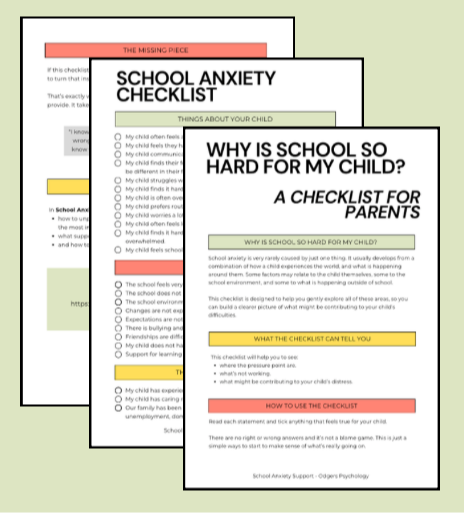Why your child's meltdown isn't bad behaviour.
Nov 05, 2025If your child's anxiety ever turns into shouting, hitting, running away, or shutting down completely, you've probably been told by someone that they're just being naughty or defiant, maybe by your partner or grandparents or an onlooker, such as a teacher. And you may even have thought that yourself. But here's the thing - they're almost certainly not.
What you're most likely seeing is the nervous system in survival mode, what we call fight, flight, or freeze. When a child's brain senses danger, it floods their body with hormones to make them ready to deal with the threat by running away, fighting or staying really still so that they won't be noticed. And at the same time, the thinking part of their brain just switches off. They can't reason, they can't listen, they just react.
And when this happens, your child isn't choosing to misbehave. Their brain is just trying to protect them.
And here's the really important bit. How we respond in the moment can make a huge difference. The way we react can either escalate the situation further or help to calm things down.
And the more we understand what's driving our child's strong reactions, the easier it is to respond in a way that actually helps. Because once you can see these moments for what they actually are - not defiance but distress - you can support your child with confidence instead of feeling like everything's out of control.
In a few weeks, I'm going be running a workshop where I'll show you exactly what's going on in your child's brain and body during these moments, and how to respond in ways that may stop the spiral and help to speed up the recovery back to calm. I'll let you know near the time how to sign up if your interested in attending.
In the meantime, you can download my free guide of simple things you can say and do to support your young person back to calm if they are in fight, flight, or freeze by clicking here.


